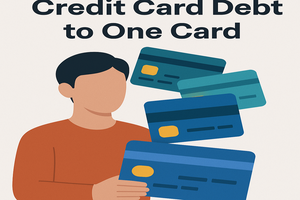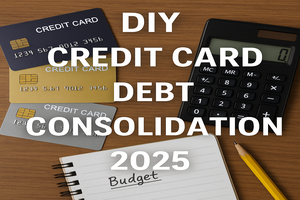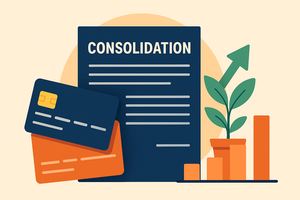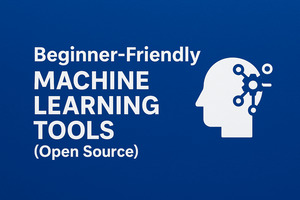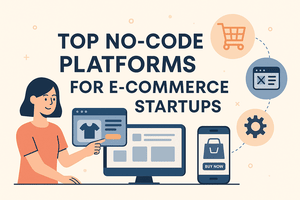Software for Digital Marketing Agencies: The Ultimate Guide to Tools That Drive Results
In the fast-paced digital landscape, marketing agencies are under constant pressure to deliver measurable results, scale campaigns quickly, and manage client expectations efficiently. The key to thriving in this environment isn’t just talent or creativity—it’s also having the right software stack. Whether you're handling social media, PPC, SEO, content creation, or analytics, the right tools can make or break your efficiency and success.
This comprehensive guide explores the best software categories and essential tools that every digital marketing agency should consider to streamline operations, boost ROI, and impress clients.
Why Software Is Crucial for Digital Marketing Agencies
Gone are the days when spreadsheets and emails were enough to run multi-channel marketing campaigns. Today’s marketing agencies must juggle dozens of tasks—ad campaign optimization, social content scheduling, client reporting, competitor tracking, and more.
Investing in powerful, scalable software allows agencies to:
-
Automate repetitive tasks
-
Collaborate across teams and clients
-
Gain deep insights through data
-
Manage multiple projects and campaigns
-
Improve accuracy and performance reporting
From startups to enterprise-level agencies, choosing the right set of digital tools is foundational for sustainable growth.
1. Project Management Software
Agencies typically handle multiple clients at once, each with its own deadlines, deliverables, and collaborators. Project management software keeps everything organized and on track.
Popular options:
-
Asana – Excellent for visual task management, timelines, and collaboration.
-
Trello – A simpler kanban-based system ideal for small teams and straightforward campaigns.
-
ClickUp – All-in-one platform combining task tracking, docs, time management, and more.
Features to look for:
-
Task delegation and comments
-
Gantt charts or calendar views
-
Client access or guest viewing
-
Real-time notifications and reporting
2. Social Media Management Tools
Managing multiple client accounts across platforms like Facebook, Instagram, LinkedIn, and X (Twitter) can be overwhelming. Social media software simplifies scheduling, content creation, and analytics.
Top tools:
-
Hootsuite – Supports publishing, monitoring, and analytics for multiple platforms.
-
Buffer – A user-friendly tool for scheduling and performance tracking.
-
Sprout Social – Enterprise-grade software offering deep reporting and CRM features.
These tools also help with:
-
Bulk scheduling and queues
-
Hashtag analysis and optimization
-
Social listening for brand sentiment
-
Team workflows for approvals
3. Email Marketing Platforms
Email continues to be a top-performing marketing channel for ROI. Whether it’s newsletters, lead nurturing, or abandoned cart flows, automation platforms can handle it all.
Recommended platforms:
-
Mailchimp – Known for its ease of use and visual campaign builder.
-
ActiveCampaign – A robust tool with advanced automation features and CRM integration.
-
ConvertKit – Tailored for creators and agencies with personalized email targeting.
What to prioritize:
-
Visual drag-and-drop builders
-
A/B testing and segmentation
-
Automation triggers and drip campaigns
-
Reporting on open/click rates and conversions
4. SEO and SEM Tools
Search engine visibility remains a primary driver of traffic. Agencies need tools to research keywords, audit websites, analyze competitors, and manage PPC campaigns.
Essential SEO/SEM software:
-
SEMrush – A powerful all-in-one tool for keyword research, site audits, backlink tracking, and PPC.
-
Ahrefs – Great for backlink data, keyword insights, and competitor analysis.
-
Google Ads Manager – Essential for running and optimizing paid search campaigns.
These tools support:
5. Analytics and Reporting Tools
Clients want to see results—fast. Reporting tools pull data from multiple platforms to present performance in easy-to-digest formats.
Tools to consider:
-
Google Analytics (GA4) – The go-to for tracking user behavior, traffic sources, and goal completions.
-
Google Data Studio – Creates shareable, visual dashboards that integrate with GA, Ads, YouTube, and more.
-
AgencyAnalytics – A white-label solution that consolidates client reporting across SEO, PPC, social media, and email.
Look for:
-
Cross-platform integration
-
Customizable dashboards
-
White-label reporting options
-
Scheduled automatic reports
6. Content Creation and Design Tools
Compelling content is the cornerstone of any successful digital marketing campaign. From blog posts to infographics and videos, agencies rely on design and content tools to bring strategies to life.
Must-have tools:
-
Canva Pro – Ideal for creating social graphics, pitch decks, and ads without needing a designer.
-
Grammarly – Ensures grammar, clarity, and tone are on-point for all content pieces.
-
Adobe Creative Cloud – A premium suite including Photoshop, Illustrator, and Premiere Pro for advanced design work.
Key capabilities:
-
Template-based design options
-
Collaboration on creative assets
-
Content optimization suggestions
-
AI-powered writing and editing
7. Customer Relationship Management (CRM) Software
Managing leads, client communications, and follow-ups becomes seamless with CRM systems. These tools also help align marketing and sales efforts.
Popular CRMs:
-
HubSpot CRM – Free to start, with robust marketing automation and lead tracking features.
-
Pipedrive – Designed for agencies that want to track and convert sales opportunities with ease.
-
Zoho CRM – Affordable and customizable for small and mid-size agencies.
Use CRMs to:
-
Score leads and track their lifecycle
-
Automate follow-up emails and nurturing flows
-
Integrate with email marketing and analytics tools
8. Landing Page and Funnel Builders
High-converting landing pages are vital for lead generation and ad campaigns. These platforms offer templates, A/B testing, and easy customization.
Top picks:
-
Unbounce – Known for its drag-and-drop editor and optimization features.
-
Leadpages – Focused on speed, templates, and performance.
-
ClickFunnels – Combines landing pages with sales funnel automation.
Benefits include:
-
Fast deployment of client campaigns
-
Built-in analytics and tracking
-
Lead capture and integration with CRMs
9. Marketing Automation Platforms
As agencies grow, manual workflows are no longer viable. Marketing automation tools help scale efforts by triggering actions based on user behavior.
Recommended platforms:
-
HubSpot Marketing Hub – Integrates email, CRM, lead tracking, and automation.
-
Marketo – Ideal for large agencies working with enterprise clients.
-
Autopilot – Visual journey builder for email, SMS, and in-app messaging automation.
Automate:
10. Payment and Proposal Tools
Winning clients is only half the battle. Managing contracts, proposals, and payments efficiently ensures smooth operations and cash flow.
Helpful tools:
-
HoneyBook – Combines proposals, contracts, and invoicing in one sleek interface.
-
PandaDoc – Great for sending and signing marketing service agreements and SOWs.
-
Stripe – A trusted payment gateway for digital agencies.
Key features:
Final Thoughts
Running a successful digital marketing agency demands much more than creativity—it requires operational excellence powered by the right software. By strategically investing in tools tailored for project management, marketing automation, analytics, and collaboration, agencies can maximize productivity and client satisfaction.
The competitive edge today isn’t about working harder—it's about working smarter. With the right software stack, your agency can focus less on tedious manual work and more on what truly matters: delivering exceptional results that grow your clients’ businesses—and your own.
